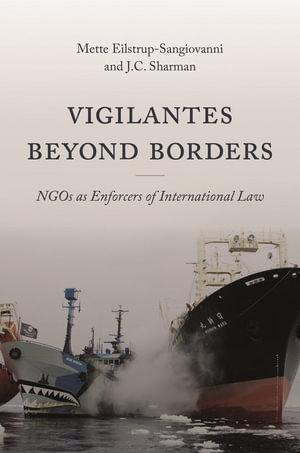
Vigilantes beyond Borders
NGOs as Enforcers of International Law
By: Mette Eilstrup-Sangiovanni, J. C. Sharman
Paperback | 5 April 2022
At a Glance
BOXING DAY
Paperback
RRP $54.99
$21.95
60%OFF
In Stock and Aims to ship in 1-2 business days
ISBN: 9780691232232
ISBN-10: 0691232237
Published: 5th April 2022
Format: Paperback
Language: English
Number of Pages: 248
Publisher: Princeton University Press
Country of Publication: US
Dimensions (cm): 23.4 x 15.5 x 1.78
Weight (kg): 0.36
Shipping
| Standard Shipping | Express Shipping | |
|---|---|---|
| Metro postcodes: | $9.99 | $14.95 |
| Regional postcodes: | $9.99 | $14.95 |
| Rural postcodes: | $9.99 | $14.95 |
How to return your order
At Booktopia, we offer hassle-free returns in accordance with our returns policy. If you wish to return an item, please get in touch with Booktopia Customer Care.
Additional postage charges may be applicable.
Defective items
If there is a problem with any of the items received for your order then the Booktopia Customer Care team is ready to assist you.
For more info please visit our Help Centre.
























